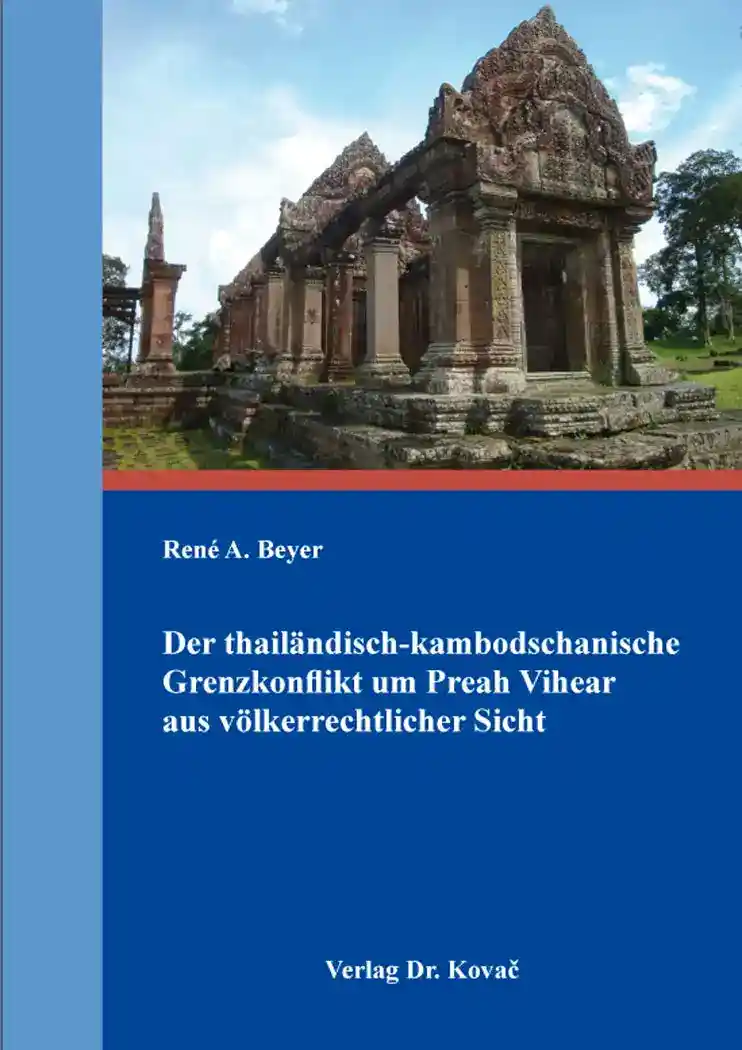René A. BeyerDer thailändisch-kambodschanische Grenzkonflikt um Preah Vihear aus völkerrechtlicher Sicht
Studien zum Völker- und Europarecht, volume 146
Hamburg 2017, 388 pages
ISBN 978-3-8300-9330-5 (print) |ISBN 978-3-339-09330-1 (eBook)
About this book deutschenglish
The divisive relationship between the Kingdom of Cambodia and the Kingdom of Thailand, which stems from centuries of tension, has repeatedly manifested itself in dispute over the temple of Preah Vihear within the last few decades.
The present research analyzes this border dispute which overshadows the bilateral relations between the two countries and has done since the independence of Phnom Penh in 1953. The cornerstone of this conflict was laid as early as 1904 when France and Siam concluded a border treaty which determined the water divide of the Dângrêk mountain range to be the boundary between the two countries. According to this treaty, the ancient temple of Preah Vihear would be placed in Siam; however, contrary to this, maps were created which showed the temple as belonging to French Indochina.
The International Court of Justice decided in 1962 that by Thailand's usage and tacit recognition of these maps they became an integral part of the 1904 border treaty and thus placed the temple under Cambodian sovereignty. Thailand finally accepted this but, contrary to Cambodian opinion, interpreted the operative part of the verdict in such a way as to see the Court's ruling as merely regarding the temple itself and not the area surrounding the temple. This dispute escalated in 2008 when Cambodia nominated the temple as an UNESCO World Heritage Site. At first, the ruling Thai government at the time agreed to support this nomination, but it was this very support that engulfed Thailand in a severe political crisis. Fueled by nationalistic forces that feared Thailand would lose its claim on the disputed piece of land there followed many months of violent protests in the streets of the country. The reasons for this conflict hence rested primarily in the domestic political crisis in Thailand at that time, as well as the complex Thai-Cambodian history.
The present research critically examines the groundbreaking ICJ verdict from 1962, which has faced numerous legal challenges in both its admissibility and its merits, as well as its judicial interpretation from 2013.
Keywords
GrenzkonfliktIndochinaInternationaler GerichtshofKambodschaPreah VihearTempelThailandUNESCOVölkerrechtWeltkulturerbeIhr Werk im Verlag Dr. Kovač

Möchten Sie Ihre wissenschaftliche Arbeit publizieren? Erfahren Sie mehr über unsere günstigen Konditionen und unseren Service für Autorinnen und Autoren.
